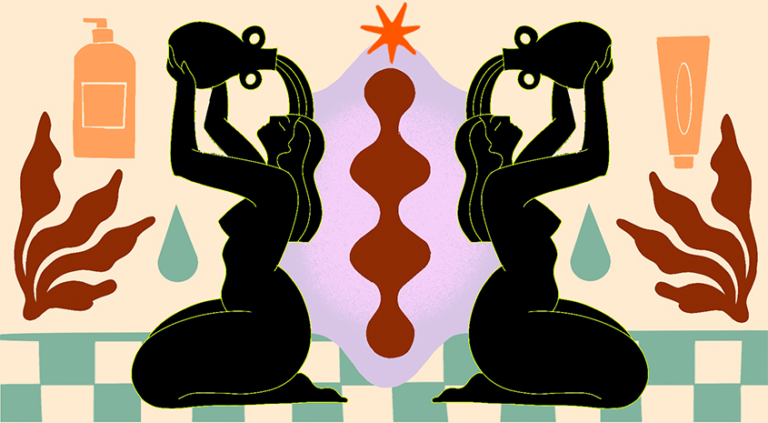When talking about personal hygiene products, I am referring to products that address the hygiene of the vulva and vagina. Some common things that are managed by way of these products include odor, itchiness, dryness, perceived cleanliness, and menstruation and these needs shift as we age and grow.
So Fresh, So Clean… my Vagine!
There was an interesting study done in Canada in 2017 where a team of researchers asked forty-nine women between the ages of 18 to 65 about why they use personal hygiene products. Following extensive interviews, they concluded: “For many of our participants, achieving sensations of cleanliness and freshness was a subjective physical need. Needing to be clean-and-fresh was viewed as necessary for participants who perceived social consequences such as stigmatization as possible ramifications for having vaginal odor and discharge.”
You might think, “well, duh, of course, everyone wants to be clean,” but I urge you to further reflect on why so many women feel that their bodies are inherently unclean. Generally speaking, a woman/vulva-owner really only needs to wash their vulva with warm water seeing as the vagina is self-cleaning, but many of us reach for those special wipes and washes to ensure our vulvas smell like roses and rainwater. The same Canadian study claims that because society has historically clung to “negative cultural constructions of women’s genitalia” which could “stem from associations of [vaginas with] bodily excretions, particularly menstruation and vaginal discharge, with uncleanliness.” These products are highly profitable because women and vulva-owners have been successfully conditioned to believe or feel that our vulvas and vaginas are dirty and need to be sanitized. In the United States alone, there is over a $2 billion per year industry cashing in on these very insecurities.
To Buy or Not to Buy
If you’re asking me if you need to buy specific products for the health of your vulva or vaginal health, the answer is: “no, you don’t.” The vagina is an acidic environment, and introducing chemicals, soaps, and other products can do more harm than good by throwing off the naturally balanced ecosystem.
BUT this science does not negate the fact that many people have insecurities about their vulvas and vaginas regarding cleanliness, odor, or discharge. It’s totally fair to want to address these insecurities and make yourself more comfortable. For this reason, let’s go over what it would look like to be a smart consumer of personal hygiene products.
Benefits of Personal Hygiene Products
Some personal hygiene products may alleviate insecurities, make you feel more comfortable, or even superficially address some of your concerns. For example, vaginal moisturizers will address dryness/irritation and certain topicals may reduce itching, though these could be signs of other underlying conditions or problems. If these problems persist or are chronic, you should talk to your healthcare provider to ensure that there isn’t a more serious cause to your symptoms that would require medical treatment (like an STI or vaginitis).
The pH Balancing Act
For a woman/vulva-owner in their reproductive years, a normal vaginal pH value ranges between 3.8 and 5 (on a scale of 1 to 14), which is considered moderately acidic. Vaginal pH can be disturbed by anything from aging to sexual activity to certain cleaning practices.
Some products work to try and rebalance your pH. Good Clean Love explains: “While every body is a little different, a naturally healthy vaginal biome has a low pH and a proper balance of moisture, salt, and lactic acid. Our Bio-Match® products are carefully formulated to closely mimic your body’s natural chemistry.”
Risks of Using the Wrong Products
Using personal hygiene products that contain toxic chemicals is a big no-no, especially because the vagina and vulvar tissues are particularly sensitive and permeable – meaning they are likely to absorb whatever is applied to them into the body. This is why it’s particularly important to be mindful of the ingredients in your personal hygiene products.
A study from 2020 offers: “There has been accumulating evidence to suggest that many vaginal cleansing products have adverse health effects. The harms of douching, in particular, have been documented since the 1980’s. Some of these early medical studies connected adverse health outcomes to the added antibacterial ingredient hexachlorophene in douches which can cause nausea, vomiting, spasms, coma, and even death.”

Top Products by Need


Written by:
Gillian ‘Gigi’ Singer, MPH
American Board Certified Sexologist, Sexuality Educator, and Sex Ed Content Specialist







